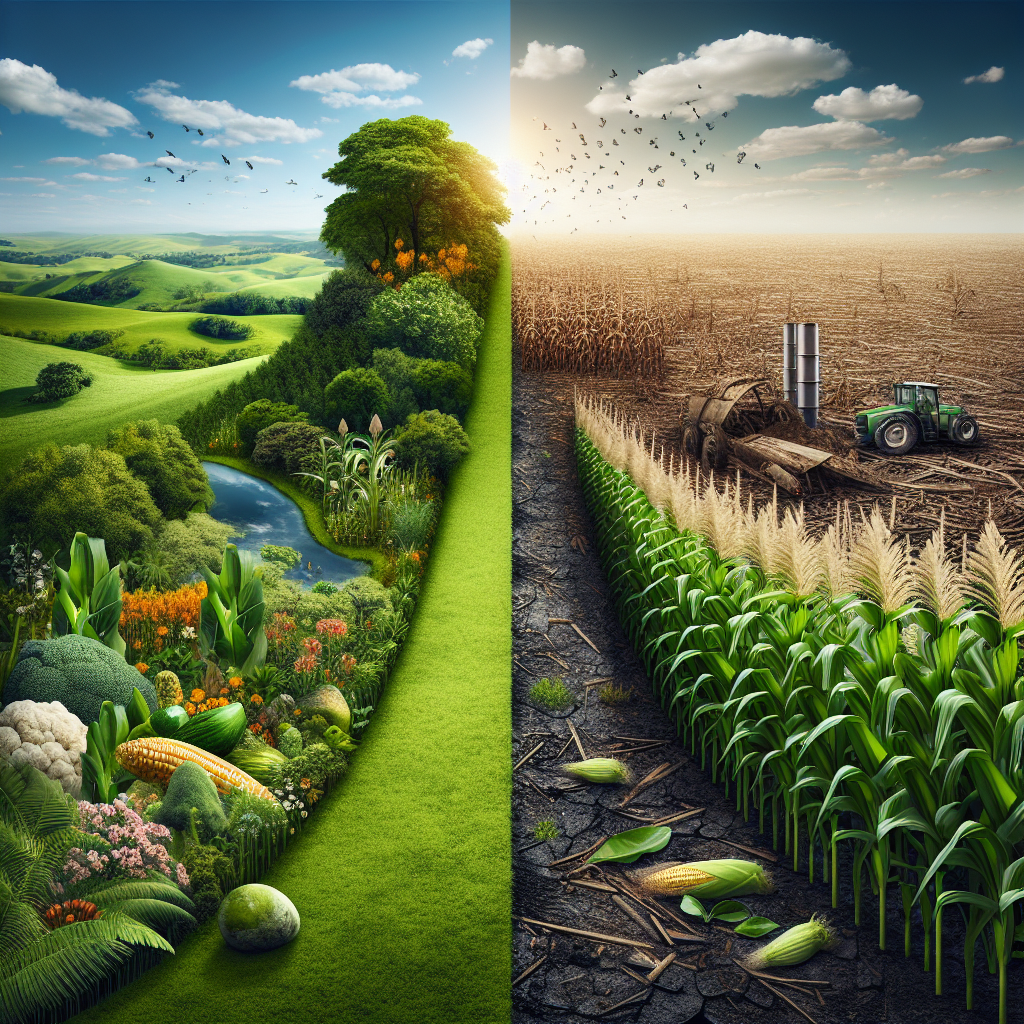The Debate Around Biofuels: Environmental Savior or Disaster?
In recent years, the global community has been in a relentless pursuit of sustainable energy solutions to combat climate change and reduce reliance on fossil fuels. Among these, biofuels have emerged as a promising alternative, hailed by some as the key to a green and renewable energy future. However, the production and use of biofuels have also been met with significant criticism, sparking a heated debate on whether they are truly an environmental savior or a looming disaster.
Understanding Biofuels
Biofuels are produced from biomass materials such as plants, algae, or agricultural and organic waste. The most common types of biofuels include ethanol, usually made from corn or sugarcane, and biodiesel, derived from vegetable oils or animal fats. These fuels can be used in vehicles, heat homes, and even generate electricity, offering a renewable alternative to traditional fossil fuels.
The Case for Biofuels
Renewable Energy Source: Biofuels are considered renewable because their sources can be replenished much quicker than fossil fuels. This aspect is fundamental in the global race towards sustainability, offering a solution that could potentially reduce our carbon footprint and mitigate climate change.
Reduction in Greenhouse Gases: When burned, biofuels release carbon dioxide that was recently captured via photosynthesis by the plants used in their production. This cycle theoretically makes biofuels carbon-neutral, as the emitted carbon dioxide is balanced by the amount absorbed by the plants grown for the next batch of fuel.
Energy Security: Biofuels provide countries the opportunity to reduce their dependence on imported fossil fuels, enhancing their energy security and protecting them from volatile oil markets.
The Argument Against Biofuels
Despite the apparent benefits, the production and use of biofuels are fraught with controversies and potential environmental drawbacks.
Land Use and Deforestation: One of the most significant criticisms of biofuels is related to land use. The demand for crops like corn and sugarcane for biofuel production has led to deforestation and the conversion of forests and grasslands into agricultural land. This not only destroys habitats but also releases carbon stored in trees and soil, counteracting the benefits of reduced carbon emissions.
Food vs. Fuel: The increase in biofuel production has raised concerns about the competition between crops for fuel and food. This competition can drive up food prices and exacerbate food shortages in vulnerable regions, questioning the ethics of diverting arable land from food production to energy.
Water Use and Pollution: Biofuel production is water-intensive, especially when crops are grown in areas that require irrigation. Moreover, the use of fertilizers and pesticides in biofuel crop cultivation can lead to water pollution, affecting aquatic ecosystems and drinking water supplies.
Lifecycle Carbon Emissions: While biofuels are promoted as carbon-neutral, this does not always hold true when considering their entire lifecycle. The emissions from land-use changes, cultivation, harvesting, processing, and transportation can sometimes result in a carbon footprint that rivals or even exceeds that of fossil fuels.
Navigating the Debate
The debate around biofuels is complex, and there’s no one-size-fits-all answer. The environmental impact of biofuels varies significantly depending on how they are produced and used. Second-generation biofuels, made from non-food crops or waste, and advancements in technology, promise improvements in efficiency and sustainability. However, careful consideration of local ecosystems, water resources, and land use practices is essential to ensure that biofuels contribute positively to our environmental and energy goals.
FAQs
Q: Are all biofuels bad for the environment?
A: Not necessarily. The environmental impact of biofuels largely depends on various factors including the source of the biomass, the land used for cultivation, and the production process. Second-generation biofuels, which use waste or non-food crops, generally have a lower environmental impact.
Q: Can biofuels truly replace fossil fuels?
A: While biofuels offer a renewable alternative to fossil fuels, completely replacing them would be challenging due to current production limitations, energy density issues, and the need for significant changes in infrastructure. They are, however, an important part of a diversified energy strategy.
Q: What are second-generation biofuels?
A: Second-generation biofuels are produced from non-food biomass sources such as agricultural waste, woody crops, and algae. These biofuels are considered more sustainable and have a lower environmental impact than first-generation biofuels made from food crops.
Q: How can the negative impacts of biofuel production be mitigated?
A: Reducing the negative impacts of biofuel production involves using more sustainable practices such as crop rotation, precision agriculture, and utilizing waste or non-food crops for biofuel production. Additionally, technological advancements and policy measures that promote responsible land use and water management can help mitigate these impacts.
Q: Is biofuel use growing worldwide?
A: Yes, the use of biofuels is growing globally, driven by policies aimed at reducing carbon emissions and fossil fuel dependency. However, the pace of growth and the sustainability of practices vary widely across different regions.
Biofuels stand at a crossroads between being an integral component of a sustainable energy future and a potential ecological misstep. As the debate continues, it becomes clear that the path to harnessing biofuels effectively and ethically involves rigorous scientific research, innovative technology, and policies that prioritize both the planet’s health and humanity’s energy needs.

